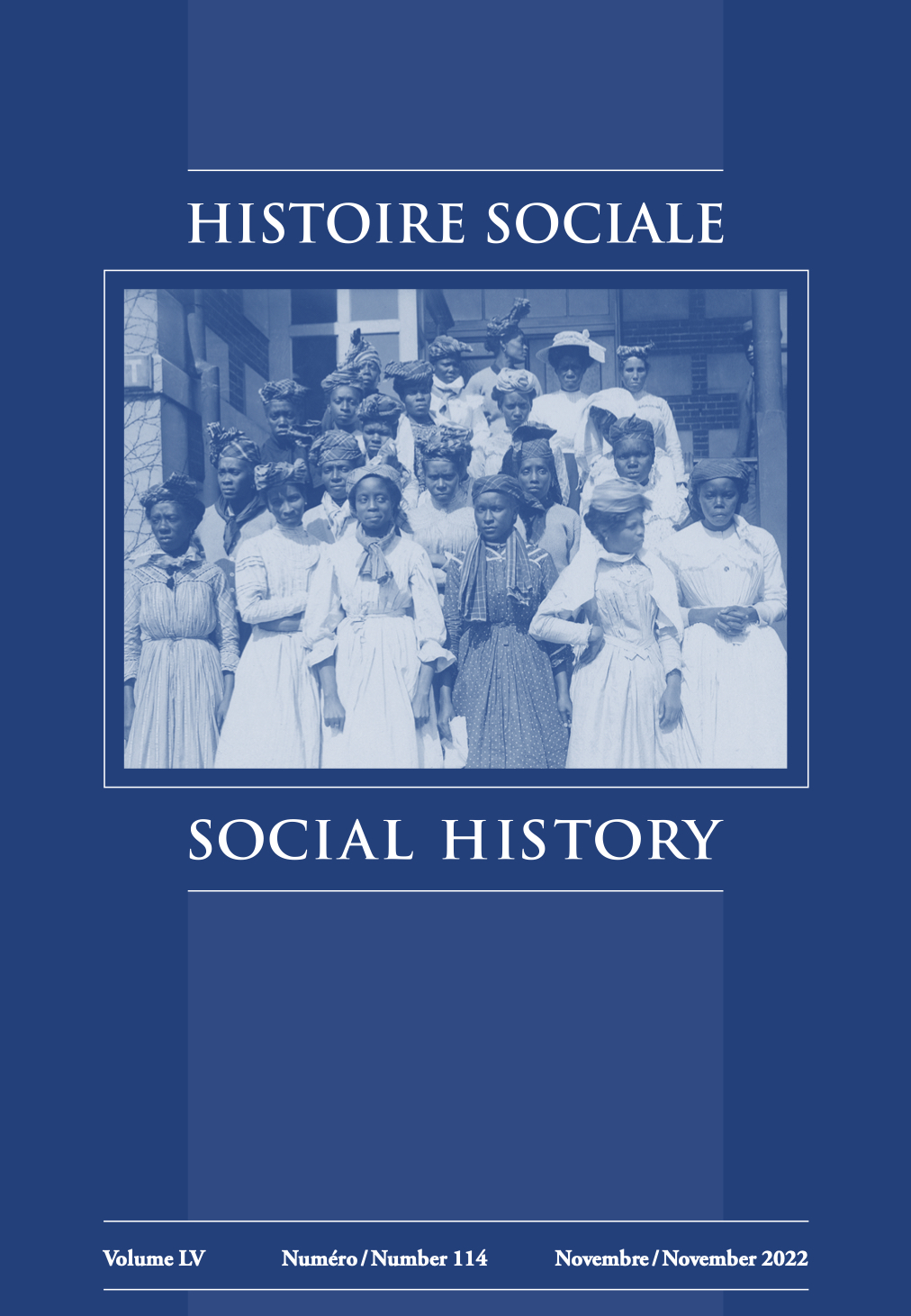En quête de domestiques : l’« échec » de l’installation d’une filière guadeloupéenne au Canada (1910-1911)
Abstract
From Confederation to the First World War, domestic service was an important sector of employment for women and served as a gateway for immigration. In a nation under construction, Canadian middle-class families, as well as the government, sought White, particularly British, domestic servants to bolster settlement in the Canadian West. Despite the high demand, immigration policy remained selective and restricted the entry of Asian and Black migrants. Faced with a shortage, French-Canadian officials began recruiting women, and a few men, from the French colony of Guadeloupe between 1910 and 1911. This private initiative was part of a desire for flexible and cheap domestic workers. Nevertheless, it forced the Immigration Service agents to intervene, on the one hand because of the legislation in force, which did not allow these servants entry on Canadian soil. On the other hand, it prevented the installation of a network that would officially encourage the immigration of Blacks to Canada.


